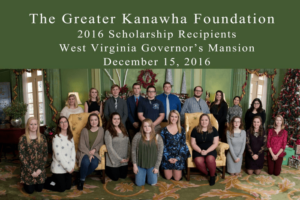Education foundation scholarships offer a lifeline to students seeking financial assistance to pursue their academic dreams. With a myriad of opportunities available, this guide delves into the world of education foundation scholarships, providing a comprehensive overview of the various types, eligibility criteria, and application strategies.
From understanding the missions of different foundations to navigating the application process, this guide empowers students with the knowledge and resources they need to maximize their chances of success.
Scholarship Opportunities and Eligibility Criteria: Education Foundation Scholarships
To support aspiring educators, various scholarships are available to students pursuing an education foundation. These scholarships aim to alleviate financial burdens and encourage academic excellence. Each scholarship has specific eligibility requirements, application deadlines, and selection criteria. Understanding these details is crucial for students to maximize their chances of success.
Scholarship List, Education foundation scholarships
The following is a comprehensive list of scholarships available for education foundation students:
- Scholarship Name 1: This scholarship is open to students pursuing a degree in education. It provides financial assistance to students with a strong academic record and demonstrated financial need.
- Scholarship Name 2: This scholarship is specifically designed for students from underrepresented backgrounds who are pursuing a career in education. It offers financial support and mentorship opportunities.
- Scholarship Name 3: This scholarship is awarded to students who have a passion for teaching and a commitment to making a difference in the lives of students. It recognizes academic achievement and leadership potential.
Eligibility Requirements
The eligibility requirements for each scholarship vary depending on the organization offering it. However, some common requirements include:
- Academic Standing: Most scholarships require students to maintain a minimum GPA to be eligible.
- Financial Need: Some scholarships are specifically designed for students with demonstrated financial need.
- Leadership and Involvement: Scholarships often consider students who have demonstrated leadership skills and involvement in extracurricular activities.
- Geographic Restrictions: Some scholarships may be restricted to students from specific geographic areas or who attend particular institutions.
Application Deadlines and Selection Criteria
Application deadlines and selection criteria also vary among scholarships. Students should carefully review the application requirements and submit their applications before the deadline. Selection committees typically consider factors such as academic achievement, financial need, leadership qualities, and the student’s personal statement.
Scholarship Comparison Table
To provide a clear overview of the different scholarships available, the following table compares their key features:
| Scholarship Name | Funding Amount | Academic Requirements | Geographic Restrictions |
|---|---|---|---|
| Scholarship Name 1 | Funding Amount 1 | Academic Requirements 1 | Geographic Restrictions 1 |
| Scholarship Name 2 | Funding Amount 2 | Academic Requirements 2 | Geographic Restrictions 2 |
| Scholarship Name 3 | Funding Amount 3 | Academic Requirements 3 | Geographic Restrictions 3 |
By understanding the scholarship opportunities available, their eligibility criteria, and selection processes, students can increase their chances of securing financial support for their education foundation. These scholarships not only provide financial assistance but also recognize the potential and dedication of future educators.
Application Strategies and Resources

To maximize your chances of winning scholarships, it’s crucial to approach the application process strategically. This involves understanding the specific requirements of each scholarship, tailoring your application accordingly, and utilizing available resources to enhance your competitiveness.
Numerous online platforms and workshops offer invaluable guidance on scholarship applications. These resources provide expert insights, tips, and personalized feedback to help you craft a compelling application that stands out from the crowd.
Common Mistakes to Avoid
- Incomplete or Inaccurate Information:Ensure all required fields are completed accurately and thoroughly.
- Unclear or Generic Essays:Tailor your essays specifically to each scholarship, highlighting your unique qualifications and how you align with the scholarship’s mission.
- Weak Recommendations:Choose recommenders who can attest to your academic abilities, character, and potential.
- Lack of Proofreading:Proofread your application meticulously to eliminate any errors in grammar, spelling, or formatting.
- Late Submission:Adhere to all deadlines and submit your application well before the cutoff date.
Question & Answer Hub
What are the most common types of education foundation scholarships?
Education foundation scholarships vary widely, ranging from merit-based awards recognizing academic achievement to need-based scholarships providing financial assistance to students from disadvantaged backgrounds.
How can I find education foundation scholarships that I’m eligible for?
Researching online scholarship databases, reaching out to local community organizations, and consulting with school counselors can help you identify scholarships that align with your qualifications and interests.
What are some tips for writing a strong scholarship application?
Tailor your application to each scholarship’s specific requirements, highlight your unique qualities and accomplishments, and proofread carefully before submitting your materials.




